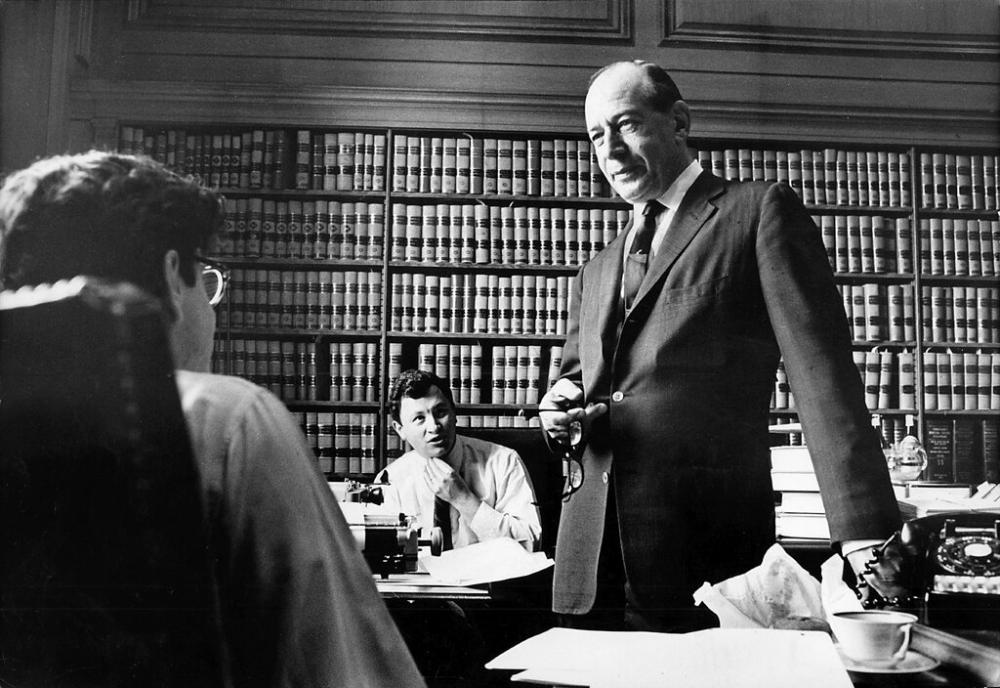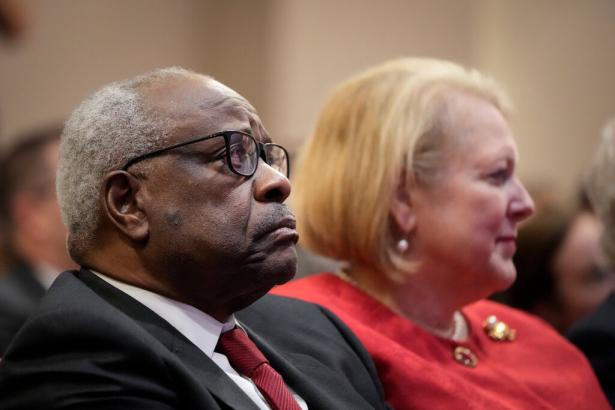54 Years Ago, a Supreme Court Justice Was Forced To Quit for Behavior Arguably Less Egregious Than Thomas’s
There are two distressing aspects to the scandal of Justice Clarence Thomas’s years of accepting luxurious vacations and private jet trips from a billionaire, as revealed last week in a damning investigation by ProPublica.
The first is that these gifts came from a man who seems to have strong feelings about issues that come before the Supreme Court. The second is the lack of bipartisan outrage at malfeasance that corrodes the standing of the nation’s highest court.
Suggesting that Democrats and Republicans agree on anything involving the Supreme Court these days sounds like the ramblings of a madman. But it is worth recalling that the last time such serious allegations were made against a sitting justice, Congress did respond firmly and in bipartisan fashion. Justice Abe Fortas’s departure from the court in 1969 is both a blueprint for how lawmakers could respond today and a benchmark of how far we have fallen.
Fortas, a Democratic appointee, got caught up in a scandal that involved much smaller dollar amounts than the lavish trips Justice Thomas took, even factoring in inflation. Fortas accepted $20,000 to consult for a foundation working on civil rights and religious freedom. Justices consulting for nonprofits was once not so unusual: William O. Douglas had a paid position with the Albert Parvin Foundation, and Warren Burger had one with the Mayo Foundation.
Unfortunately for Fortas, the businessman who started the foundation that had retained him, Louis Wolfson, was investigated by the Justice Department for financial improprieties and eventually convicted of securities violations. In 1966, Fortas quit the foundation and returned all the money he had accepted.
There were other clouds around Fortas. His contract with the foundation was originally for $20,000 in annual payments for consulting work for the rest of his life, and there was an earlier controversy over a course he was paid $15,000 to teach at American University while on the court. He also had an unfortunate habit of continuing to offer advice to President Lyndon Johnson, whom he had long advised, even after joining the court. But it was his involvement with Wolfson that forced him off the court.
In 1969, Life magazine reported on Fortas’s long-extinguished ties to Wolfson’s foundation and on the money he had returned, and a scandal ensued. We now know the Nixon administration was helping Life with its investigation, including with some improper leaks, in an attempt to drive Fortas off the court.

When Life’s revelations appeared, Republicans in Congress demanded that Fortas resign. That was not surprising — the liberal Fortas was appointed by Johnson. What was remarkable by today’s standards is that Democrats demanded his ouster, too. Walter Mondale of Minnesota was the first Democratic senator to do so, and Senator Joseph Tydings of Maryland, a liberal Democrat who had been one of Fortas’s biggest supporters, soon followed. It packed a real punch when The New York Times reported on the front page, “Tydings Declares Fortas Must Resign Immediately.”
These Democrats called for Fortas to step down, even though President Richard Nixon, a Republican, would appoint his successor, which would help to flip the court from a liberal majority to a conservative one. They made clear that they were more concerned with the court and the country than with their ideology or their party. “The confidence of our citizenry in the federal judiciary must be preserved,” Tydings declared.
With his own party turning against him, Fortas was in danger of being impeached by the Democratic-controlled House. Fortas insisted he had done nothing wrong, but he stepped down, explaining in his resignation letter to Chief Justice Earl Warren that “the welfare and the maximum effectiveness of the court to perform its critical role in our system of government are factors that are paramount to all others.”
Justice Thomas’s conduct has been far more egregious in scale than Fortas’s. ProPublica reported that a single nine-day “island hopping” trip by Justice Thomas and his wife, which included a 162-foot superyacht, could have cost him over $500,000 if he had chartered the private jet he flew on and the yacht himself. Justice Thomas did not report the largess he received on his financial disclosure forms, which appears to violate federal law, according to ethics experts ProPublica spoke to. (Justice Thomas issued a nonapology of the “there is nothing to see here” variety.)
The defenses being made on Justice Thomas’s behalf hardly pass the laugh test. It was just, as Justice Thomas put it, “personal hospitality” among close friends? That would be a nice meal at a friend’s home, not an invitation to travel the world like royalty on a plutocrat’s dime. And about that friendship: ProPublica reports that Justice Thomas’s rich benefactor, the real estate developer Harlan Crow, befriended him after he became a justice. It is hard to believe that if Justice Thomas started voting like Justice Sonia Sotomayor, the friendship or the free island hopping would continue.
ProPublica reported that neither Mr. Crow nor his firm has had a case before the court since Justice Thomas joined it. But Justice Thomas and his conservative allies have been catering to the interests of the ultrawealthy for years, from striking down campaign finance limits to making it harder for workers to unionize. Mr. Crow also serves on the board of the conservative American Enterprise Institute, whose website makes clear that it takes a keen interest in cases before the court.
Justice Thomas’s windfall has “no known precedent in the modern history of the U.S. Supreme Court,” according to ProPublica. It is also part of a climate of growing ethical rot. He has been voting in cases in which his wife, the conservative activist Ginni Thomas, has ties to the parties involved. Justice Antonin Scalia died in 2016 in a free room at a luxury ranch owned by another very rich man.
The harm all of this does is incalculable. According to Gallup, trust in the federal judiciary is at a record low. But the impact goes beyond the court, damaging American democracy itself. Behavior like Justice Thomas’s plays into the popular belief that across government, the fix is in — that the rich and powerful are buying off decision makers to get what they want.
Democrats have been screaming foul. Representative Bill Pascrell Jr., a New Jersey Democrat, called Justice Thomas “corrupt as hell” and demanded that he resign — one of several Democratic Congress members urging resignation or impeachment. Democrats in Congress are also pushing for a code of ethics for the justices who, unlike lower court federal judges, are not covered by one.
Republicans, however, have been deafeningly silent. Fox News has filled the void by locating an “expert” to declare that the story about Justice Thomas is “politics, plain and simple.” Influential Republicans in Congress are reported to be working behind the scenes to block the push for a code of ethics.
If our body politic were as healthy today as it was in 1969, leaders of both parties would be demanding Justice Thomas’s resignation, and he would be as worried about being impeached by a Republican House as Fortas was by a Democratic one. And we would hear Republicans in Congress say, as Tydings once did, that what matters most of all is not party or ideology but that “the confidence of our citizenry in the federal judiciary must be preserved.”
[Adam Cohen, a former member of the New York Times editorial board, is the author of “Supreme Inequality: The Supreme Court’s Fifty-Year Battle for a More Unjust America.”]


Spread the word